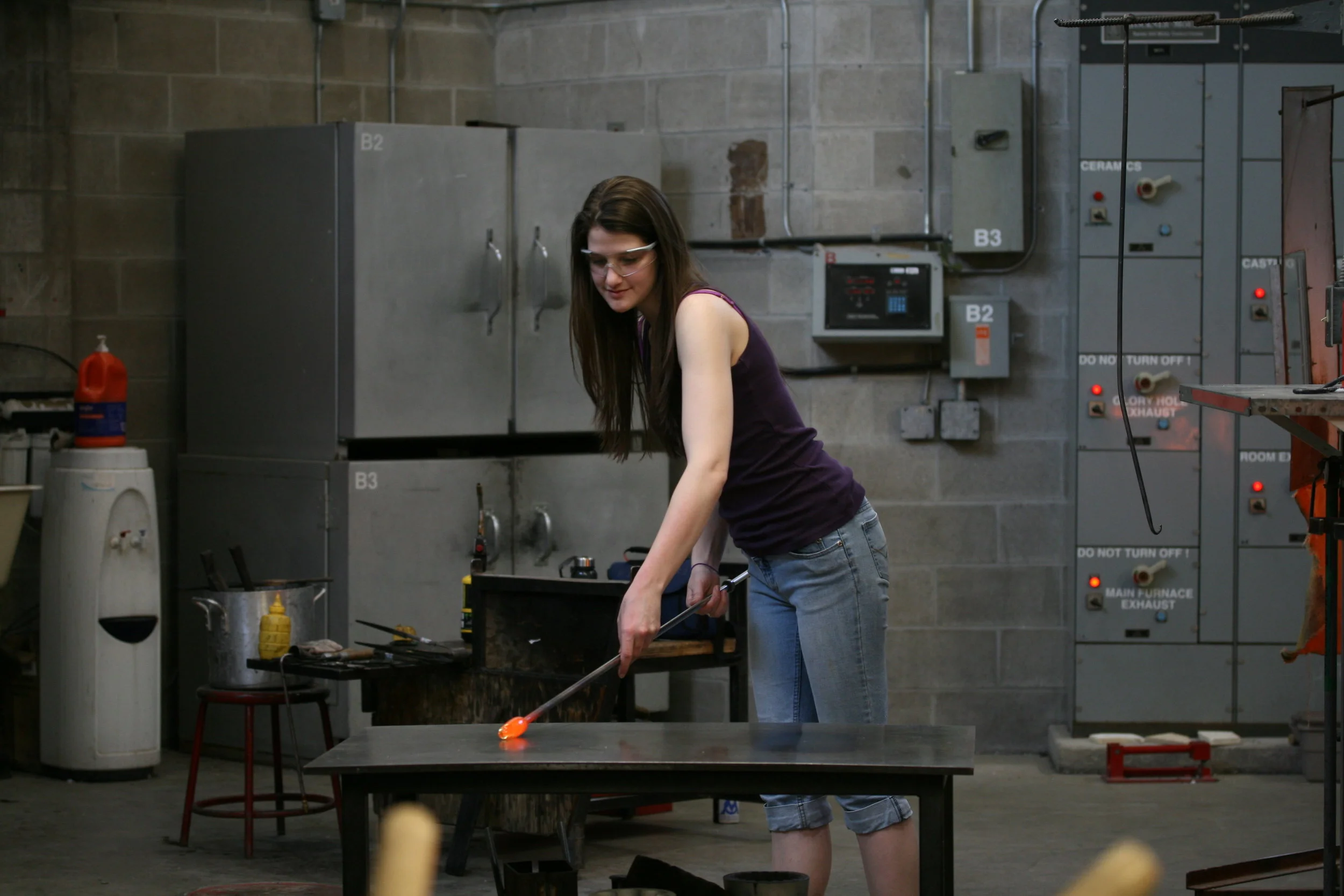I graduated from the Crafts and Design program at Sheridan ten years ago. I almost refuse to accept that it's been that long, because frankly, where did the time go? I have been reflecting a lot recently on what has led me to the point where I am still creating ten years later and here are some things I have learned:
1. How to adapt
Were you ever asked what your 5 year plan was? I've lost track of how many times I have revised mine, so I have given up on having one entirely. There have been so many changes in my life, some that I controlled (going back to school to get my BFA) and some beyond my control that I had no way of planning for. Know that there are going to be ups and downs, and that is okay. Some years might be amazing, some years might be crappy. But when life throws you a curveball, I promise that there is always a solution. It might not be easy, and it might take a lot of hard work but there is always a way forward.
2. Community is everything
In the art world, it is so easy to surround yourself with amazing people. The craft show circuit is an especially amazing community. I am so lucky to be surrounded by a fantastic network of people.
3. The glorious power of Google.
Seriously, I can’t stress this enough: Google is your friend. I didn't get to this point by hoping that all the answers I need just fall into my lap. The best way to source suppliers, shops, and shows is to dig deep into the research and look at your options. I have spent hundreds of hours pouring over my computer looking up anything and everything that could help my business. Put the work in, it's worth it.
4. If there is something that no longer makes you happy, stop doing it.
Is there a show you participate in that is making you miserable? Well, I have great news! You don't have to do it anymore! I have said this many times: there is absolutely nothing that is worth sacrificing your mental health for.
5. The importance of meeting deadlines
Did you think that deadlines in school were a joke? You aren't going to escape from them in the real world. Is there a grant you really want? Well there is a hard deadline and if it is important to you, you'll meet the deadline. Have you been emailing with a shop or a potential customer and you told them you would get back to them with some information by a certain day? Then follow through!
All that said, sometimes we set self-directed deadlines like "I want to make 30 of this thing before the next show". The world isn't going to collapse in on itself because you only managed to make 20 of them. Learn which deadlines are really important, and give yourself a break if you don't meet the ones you created for yourself.
6. Doing production work does not make you less of an artist
When I was in school I sincerely thought I would hate doing any kind of production work. But I find a great deal of satisfaction in being able to sit down at the torch for a few hours and pump out work. Just because you can make things quickly doesn't mean that each little thing you make isn't a tiny piece of art. Whether it takes you months or minutes to make something, you are still an artist.
7. Having a full time job does not mean you are a failure
This was a really tough one for me and something I struggled with for years. There is no rule book for being an artist. Personally I am much happier having a full time job. Having that stability is important to me and moreover it takes the pressure off and allows me to enjoy creating that much more. It's all about finding something that complements your practice. I have found that my job in marketing complements my business perfectly, and they often inspire each other. A few months ago I never would have had the energy or the motivation to work on a post like this, but being somewhere that helps fuel the passion has had an incredible impact on my business.
8. Making is only the tip of the iceberg for being an artist. There’s more to it than everyone thinks.
Artists aren’t just makers. There are many other skills required to keep things running behind the scenes. In order to run a successful art business you need skills in: Sales, Marketing, Customer Service, Web & Graphic Design, Photography, Administration, Shipping & Receiving and Accounting (just to name a few). The next time you assume that artists are lazy, think again.
9. Dealing with rejection and naysayers
Rejection is a huge part of being an artist. You won't be accepted to everything you apply for, that's just a fact. It is extremely easy to feel discouraged, especially when you are starting out. Keep putting yourself out there and taking risks!
Unfortunately, you will also deal with people telling you that you just can't do it. Do you think I would still be doing this if I had listened to those people, or my worst critic of all: my own inner dialogue? I have dealt with friends, family, and terrible ex-boyfriends filling my head with thoughts like "This isn't good enough. You aren't good enough. Why are you still doing this?" What those people don't know is that the best way to ensure that I will do something is to insinuate that I can't. Ignore them, rise up and show them what you can do.
10. Whatever you do, just keep creating.
This last one is simple. Sometimes the only way to stay in the game is to just keep at it. What you are making now might not be what you are making ten years from now. This was me ten years ago at Sheridan thinking I was going to make lots of big blown glass sculptures. But I found a home and settled down in flameworking instead and I couldn't be happier.


